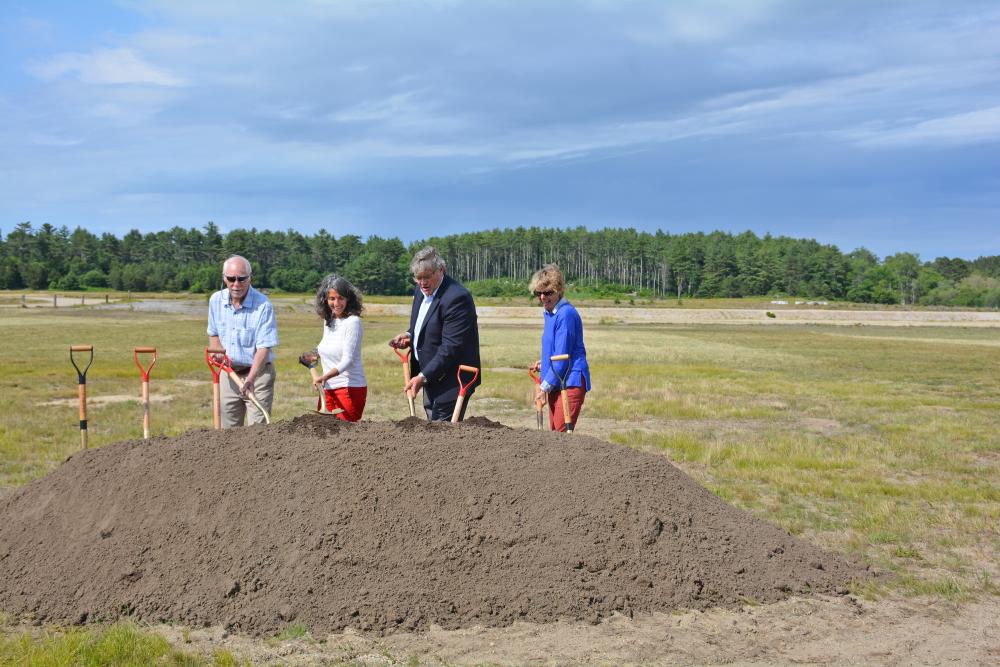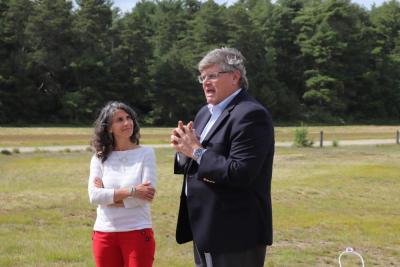Community farm to be developed on town line
A.D. Makepeace and the Marion Institute are partnering to develop a Farm to Food Relief program that will increase food access to locals in need, including Wareham residents.
The Neighborhood Farm at Frogfoot will be a six-acre farm located on Makepeace property in a remote area on the Plymouth-Wareham town line.
The Marion Institute will grow the food that will then be donated to local programs.
“This is a little bit of a dream come true for me,” said Jim Kane, president and chief executive officer of Makepeace.
Kane said this work is important to him because his grandmother and her family needed food assistance in the 1920s following the death of her father in a car accident.
“How in 2023 there can still be people going to bed hungry is just beyond me,” he said.
Liz Wiley, executive director of the Marion Institute, said the project has been in the works for years and was championed by Chris Makepeace, former Makepeace president and current board member.
“We are grateful to the A.D. Makepeace Company for their support and partnership in bringing this vision to life,” she said.
In the Marion Institute’s recently published Food System Assessment for Southeastern MA, a consumer survey indicated that the hardest to get food items are affordable meat and seafood, fresh fruits and vegetables.
The two organizations hope this farm will combat these results by providing access to not only low-to-no-cost foods, but also nutritionally secure foods.
“Our nation’s broken food system is characterized by an abundance of cheap, inflammatory, nutrient-depleted, immune suppressing, ultra-processed foods,” Wiley said. “Unfortunately, our current food relief system relies heavily on these shelf-stable products, which ultimately negatively impact public health.”
The Marion Institute also plans to launch a regional gleaning program that will address issues of food waste.
Farm foods that would typically go to waste due to limited staffing and a bad market will be “rescued” by a group of gleaning volunteers who will then take this excess harvest to local food programs.















